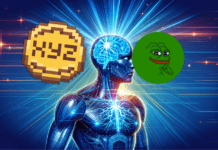What Is Remote Onboarding?
Remote onboarding is the online version of worker onboarding. It essentially involves all the important stages of the traditional onboarding process and it is facilitated by various IT tools. For example; apps for video calls, file sharing, and so on.
The goal of remote onboarding is to introduce an employee to the organization and make them feel welcome, even if they are not physically present. This includes integrating them into the workflow to ensure productivity right from the first day. You can see how this process is crucial to virtual or geographically distributed teams.
Checklist
A properly structured online onboarding checklist not only aids in streamlining the process but also makes the experience better for the employee. This will in turn improve engagement and productivity. See the checklist for organizations looking to enhance their remote onboarding activities below.
Before Day 1
-
Preparation of Equipment and Access
Send the relevant hardware to the new hire. It could be a combination of a laptop, mobile device, headset, and so on. Software packages and their access rights also need to be provided. You may have to help the employee set up company email accounts, access networks, install applications, integrate asset management software, secure devices, etc.
-
Delivering a Welcome Package
You could make the new hire develop a sense of belonging by sending a welcome package that includes company-branded items. For example; wearables, stationery, etc.
-
Provision of Crucial Documents
Digital copies of the organization’s policies, employee handbook, benefits information, and so on can be sent. The work brief should be made available as well so that the employee will prepare for the first set of tasks.
Day 1 and Week 1
-
Conduct a Welcome Session Online
HR managers can arrange a one-on-one or group video call to formally welcome new hires. This is a good way to introduce them to the company and team. For example; you could get them acquainted with the corporate culture and the roles of each team member.
-
Assign a Partner or Mentor
A good idea for helping new employees learn team operations faster is to pair them with more experienced team members in the form of a mentor or work buddy. The chosen member will render guidance for the first few days or weeks as required.
-
Organize Mandatory Training Programs for IT and Security
Such training is important so that the trainee can set up IT assets at their location with minimal support. Learning about security measures is necessary to mitigate risks such as getting hacked, compliance breaches, etc.
-
Commence Training Programs Specific to Employee Roles
This could be done via the recommendation of e-learning modules or the organization of online workshops. The program will be aimed at the employee’s upskilling.
Ongoing Support
-
Check-Ins and Feedback
Regular check-ins and opportunities for feedback will facilitate progressive discussions, airing of concerns, and problem-solving.
-
Encourage Communication with Team Members
Communication with team members should not be allowed to die down after introductions. The fresh addition to the team should be urged to interact with others as much as is reasonable—even going as far as building relationships.
-
Evaluate and Develop the Onboarding Process
Assess the effectiveness of each item on the checklist and make the needed alterations. Doing this will help HR managers in refining their approach to handling future hires.
Can ITAM Software Help With Remote Onboarding?
IT Asset Management software can greatly upgrade, optimize, and streamline the virtual onboarding process. This is through the efficient distribution and monitoring of IT assets crucial to new hires. Issues like compliance breaches, setup time, and so on are curbed via the integrated IT automation solutions that such software offers.
Final Thoughts
The difficulty of integrating online onboarding processes with IT asset lifecycle management tools could be determined by how complex your company’s existing IT infrastructure is. Nonetheless, keep in mind that most modern ITAM software packages are made to be compatible with a diverse range of IT systems. Consider services like Dots that offer extensive compatibility features suited to specific requirements.









